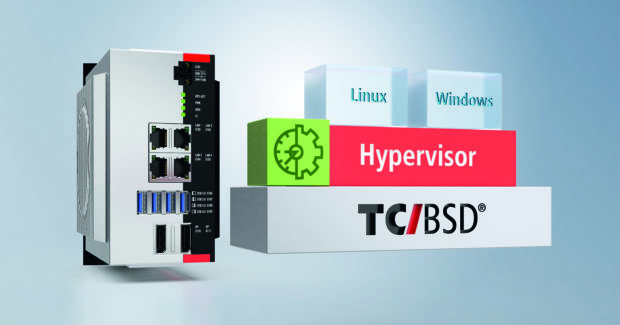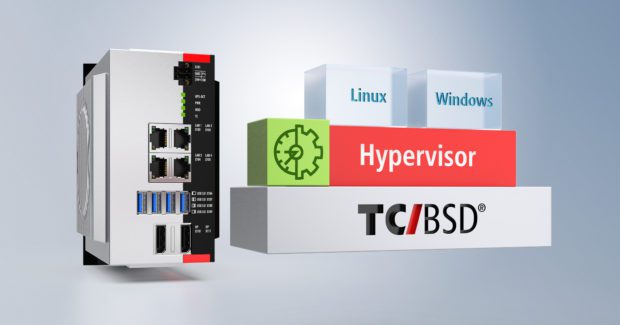Beckhoff’s TwinCAT/BSD Extension Offers Efficient Engineering and Execution of Virtual Machines
With this TwinCAT/BSD OS extension, Hypervisor, Beckhoff increases availability through integrated virtual machine environments.
Posted: January 20, 2022
TwinCAT/BSD Hypervisor, a powerful new feature of the TwinCAT/BSD operating system from Beckhoff, enables simultaneous execution of virtual machines and TwinCAT real-time applications on an Industrial PC (IPC). Optimized hypervisor integration in TwinCAT/BSD, plus matching configurations of Beckhoff hardware and software provide maximum performance for virtual machines – often called VMs – while maintaining TwinCAT real-time properties for automation.
The high-performance execution of virtual machines means different operating systems can be utilized on one IPC so users can take advantage of the features and strengths of each. In addition, users can enhance the security properties of the overall system by operating user environments in a modular and isolated manner. For example, TwinCAT real-time applications can operate separately from a Windows desktop environment for machine operation on an IPC. In this context, the Windows operating system runs in a virtual machine environment. Therefore, when Windows restarts, e.g., due to software updates, it will not interrupt machine control execution. This ensures optimal machine availability since Windows only restarts within the virtual machine environment and TwinCAT continues to run in the real-time context supported by the TwinCAT/BSD host.
Through the device passthrough feature of TwinCAT/BSD Hypervisor, hardware resources such as the GPU, USB ports and/or network interfaces can be explicitly assigned to a virtual machine. In this way, access to the TwinCAT/BSD system by user and/or network interfaces can be limited, creating opportunities to boost control system security.
TwinCAT/BSD Hypervisor supports operation of Linux distributions on the controller in addition to Windows, such as for running Linux containers, for example. In this case, host-only networks support data communication between Linux containers and the machine controller. This ensures that unencrypted network communication will only take place locally between TwinCAT/BSD and the Linux container host, and confidential machine data does not leave the IPC.
















